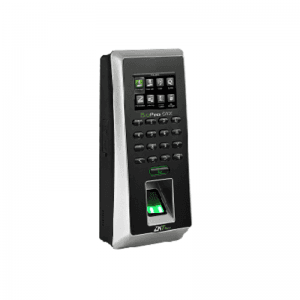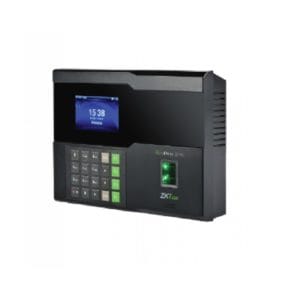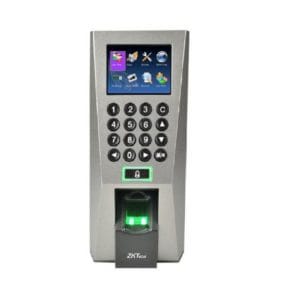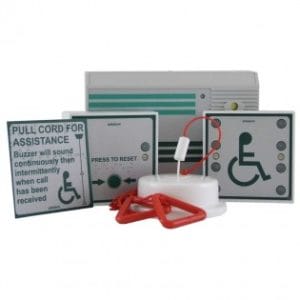Your list is empty, add products to the list to send a request
A Guide to Choosing the Best Intercom System for Improved Security

23
Jul
In today’s world, security and convenience are top priorities for homeowners and businesses alike. An intercom system offers a perfect blend of both, allowing you to communicate with visitors at your door, grant access remotely, and keep unwanted guests at bay. However, with a variety of options available, choosing the right intercom system can be overwhelming.
This guide will equip you with the knowledge to make an informed decision. We’ll explore different intercom types, key features for security, and factors to consider before buying.
What is an Intercom System?
An intercom system is a stand-alone voice communication system used within a building or small collection of buildings. Intercoms are commonly used for communication in various settings, including residential, commercial, and industrial environments. They can be wired or wireless; modern systems often include video capabilities.
Understanding Your Needs
Before diving into specific systems, it’s crucial to understand your needs and priorities. Consider the size of your home, how many people live there, and your security concerns. Here are some questions to get you started:
- Number of Stations: How many intercom stations (handsets or monitors) do you need throughout your house?
- Features: Do you prioritize clear audio communication, video monitoring, or smart home integration?
- Security: Is remote access for lock control or viewing visitors important to you?
- Wired vs. Wireless: Do you have existing wiring in your home, or would a wireless system be more convenient?
- Budget: Intercom systems range in price. Determine a comfortable budget for your project.
Types of Intercom Systems:
Now that you have a better understanding of your needs let’s explore the different intercom systems available:
- Audio Only Intercoms: These classic intercoms provide voice communication between stations within your home. They’re a budget-friendly option for basic communication needs.
- Video Intercoms: These systems offer a visual element, allowing you to see who’s at your door or inside another room. This adds a layer of security as you can identify visitors before granting access.
- Wireless Intercoms: Wireless intercoms offer greater flexibility in placement, eliminating the need for wiring during installation. However, they may experience occasional signal interference.
- Wired Intercoms: These systems provide a more reliable connection than wireless options. However, installation requires running wires between stations, which may be inconvenient if your home already has finished walls.
- Smart Intercoms: These high-tech intercoms integrate with smart home systems, allowing you to control features like door locks, lights, and thermostats remotely. They can also offer features like mobile app integration for answering calls from anywhere.
Features to Look for in an Intercom System
When choosing an intercom system, security should be a top priority. Here are some key features to look for:
- Remote Access: The ability to answer calls and view visitors remotely through a smartphone app provides an extra layer of security, especially if you’re away from home.
- Door Lock Integration: Some intercom systems can integrate with your existing door locks, allowing you to unlock doors remotely for authorized visitors.
- Night Vision Cameras: For video intercoms, ensure the camera has night vision capabilities to see visitors even in low-light conditions.
- Motion Detection: Motion detection can trigger alerts when someone approaches your door, even if they don’t press the call button.
Additional Considerations:
- Ease of Installation: Consider your DIY skills and whether a professional installation is needed.
- Scalability: If you plan on adding more stations in the future, choose a system that allows for easy expansion.
- Power Source: Some intercoms are hardwired for continuous power, while others use occasional replacement batteries.
Top Intercom Systems for 2024
- Aiphone JOS-1VW
- Type: Video Intercom System
- Features: 7-inch touchscreen, wide-angle camera, smartphone integration.
- Pros: High-quality video, user-friendly interface, remote access via the app.
- Cons: Higher price point.
- Ring Video Doorbell Pro 2
- Type: Video Intercom System
- Features: 1536p HD video, advanced motion detection, Alexa compatibility.
- Pros: Easy installation, smart home integration, high-definition video.
- Cons: Requires strong Wi-Fi connection.
- Nucleus Anywhere Intercom
- Type: Wireless Video Intercom System
- Features: Wi-Fi connectivity, touchscreen interface, and built-in Amazon Alexa.
- Pros: Portable, multi-room communication, easy to set up.
- Cons: Limited range due to reliance on Wi-Fi.
- Hosmart Wireless Intercom System
- Type: Wireless Audio Intercom System
- Features: Long-range (up to 1 mile), group call function, secure digital communication.
- Pros: Affordable, excellent range, simple setup.
- Cons: Audio only, no video capabilities.
- TMEZON Wireless Video Door Phone
- Type: Wireless Video Intercom System
- Features: 10-inch monitor, Wi-Fi connectivity, IR night vision.
- Pros: Large screen, good night vision, easy installation.
- Cons: May experience Wi-Fi interference.
How to Choose the Right Intercom System
- Determine Your Needs
- Consider the size of your property and the primary purpose of the intercom system. Do you need video capabilities for security, or is audio communication sufficient?
- Consider the size of your property and the primary purpose of the intercom system. Do you need video capabilities for security, or is audio communication sufficient?
- Budget
- Intercom systems range from budget-friendly to high-end. Determine your budget and find a system with the best features within your price range.
- Intercom systems range from budget-friendly to high-end. Determine your budget and find a system with the best features within your price range.
- Installation Requirements
- Decide whether you want a system that is easy to install or if you are willing to invest in professional installation for a wired system.
- Decide whether you want a system that is easy to install or if you are willing to invest in professional installation for a wired system.
- Integration
- If you have an existing security system, consider an intercom that can integrate with it for a seamless security solution.
- If you have an existing security system, consider an intercom that can integrate with it for a seamless security solution.
- User Experience
- Read reviews and consider the user-friendliness of the system. A complicated system may only be suitable for some users.
Benefits of Using an Intercom System
- Upgrade Security
- Intercom systems add an extra layer of security by allowing you to verify visitors before granting access.
- Intercom systems add an extra layer of security by allowing you to verify visitors before granting access.
- Improved Communication
- Easily communicate with different parts of your home or office without moving around.
- Easily communicate with different parts of your home or office without moving around.
- Convenience
- Modern intercoms often come with additional features like remote access and integration with smart home systems, making daily life more convenient.
- Modern intercoms often come with additional features like remote access and integration with smart home systems, making daily life more convenient.
- Peace of Mind
- Knowing that you can monitor and control access to your property provides peace of mind.
Conclusion:
Choosing the best intercom system depends on your needs, budget, and preferences. There are plenty of options available, whether you need a simple audio system for internal communication or a high-tech video intercom for enhanced security. By considering the features and benefits of each type of intercom system, you can find the perfect solution to improve security and communication in your home or office.













